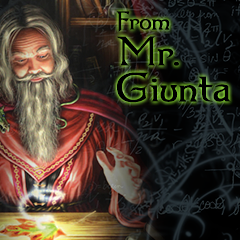From my experience, as an avid fantasy reader and sometimes writer, the fastest way to pull a reader out of a story is with inconsistency. Word choice and pacing play a big role in keeping things moving along smoothly, but nothing jars the eyes quite like a bafflingly uncharacteristic action / response, contradicting established premises or flat out breaking the rules of physics and reality set forth from the beginning. It’s perfectly fine to elaborate upon an idea, twisting it in unexpected ways to arrive at something totally new but still within the confines of the story’s canon. In fact, I’d encourage it and really enjoy seeing such occurrences.
In my mind, the story is always more about the characters than the events taking place around them. While a character can behave in a surprising manner, often leading the reader to wonder at the cause, an absolute break from normal behavior or word choice for that particular person can leave the reader with a what-the-hell moment.
Imagine reading half a book, where a king has been shown to be kind to his family and subjects, to treat all life with respect, to be stern when due but always fair and just. Wealth is used to better his kingdom, to ensure all are housed and fed, clothed and safe. There are no dungeons or stocks, because he could not bear to see any of his people suffer. Those who break the law work extra hours in the fields or cart refuse to be buried far away. Serious crimes are met with banishment and threat of death upon return, but no one has been executed since before his father’s time as king. The early morning of each day, court is open to any with a grievance to be heard or a quarrel to be settled. An old friend of the family accuses a young boy of raping his daughter. The girl won’t speak, and the boy denies it. Her father asks that the rapscallion be sent from the kingdom, never to return. So moved by words of this horrible deed, images raging in his mind of his own daughter struggling beneath the boy, that the king considers the unthinkable, this degenerate boy’s life was not worth preserving; or worse, that a sickness ran the nature of the boy’s entire bloodline. Was he truly considering banishing a whole family? They’d never shown hostility or perversion before, but could he risk it? He had more to protect than the flesh of his own blood. His people deserved to feel safe, to live without worry of violation or murder. No, there was only one way to be sure. The king stood and eyed the boy, proclaimed him guilty then sentenced him and every living relative be put to the sword. Guards were immediately dispatched to enact the sentence. The boy fell to his knees, sobbing and pleading, but his cries fell upon deaf ears. The king walked forward, stood over the pathetic whelp and said in a grating voice, “Save the tears for yo mama!”
Yeah. That’s about as likely as Superman punching a pregnant woman for jaywalking.
The other side of that coin is breaking existing rules. If it’s already established that there is no magic, introducing it later to solve a problem is about as bad as deus ex machina. The reader will scream – and not in a good way. The better approach is to take an existing law of nature (a hydromancer can control water by thought alone) and evolve it further in an unforeseen way that makes the story fun (But Auralas was more than a mere hydromancer; he held mastery over blood, could bend man and animal to his will). A reader can buy into almost any premise, whether silly or serious, so long as the writer remains constant and believable.
Your Thoughts?
As with any post, you are welcome to open a discussion on the Brick Cave Media Author Fans Group on Facebook. Click here, and find the post in the group, or start a new discussion.

